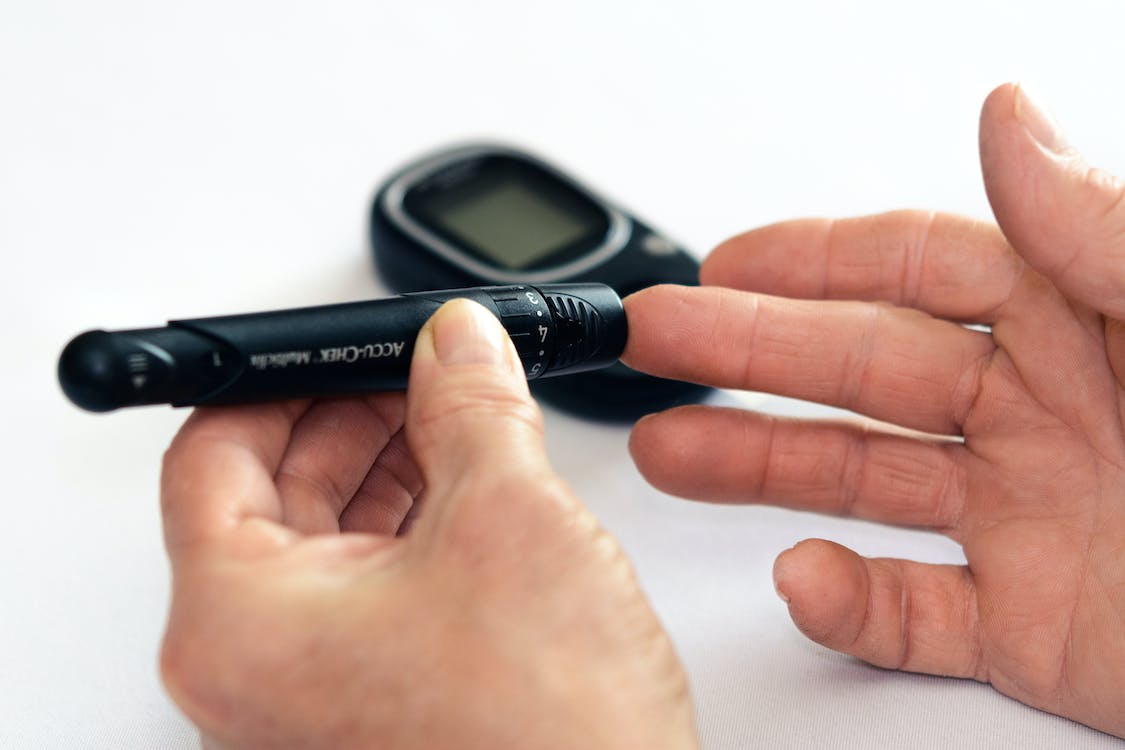
Diabetes is a chronic disease that affects millions of people worldwide. It occurs when the body cannot properly produce or use insulin, a hormone that regulates blood sugar levels. There are three main types of diabetes: type 1, type 2, and gestational diabetes. Each type has its causes, symptoms, and targeted treatments.
In this guide, we will provide you with all the essential information about diabetes so that you can better understand and manage this condition.
Types of Diabetes
Diabetes is classified into several types, each with distinct characteristics and underlying mechanisms.
In type 1 diabetes, the immune system of the patient attacks and destroys the cells producing insulin in the pancreas. This results in a complete deficiency of insulin, requiring lifelong insulin therapy for management.
The next one would be Type 2 Diabetes. Type 2 diabetes is known by insulin resistance, where the body's cells become resistant to the effects of insulin. Over time, the pancreas may also produce less insulin. Type 2 diabetes is often associated with lifestyle factors such as obesity, physical inactivity, and poor diet.
There is also Gestational Diabetes, which occurs during pregnancy when the body cannot produce enough insulin to meet the increased demands of pregnancy. While it typically vanishes after childbirth, women with gestational diabetes are at increased risk of developing type 2 diabetes later in life.
Causes of Diabetes
The causes of diabetes change depending on the type of diabetes. For Type 1 Diabetes, the exact cause of type 1 diabetes is unknown. Still, it is believed to involve a combination of genetic predisposition and environmental factors, such as viral infections or exposure to certain toxins.
Type 2 Diabetes, on the other hand, is primarily driven by lifestyle factors such as obesity, physical inactivity, unhealthy diet, and genetics. Insulin resistance is a key underlying factor in which the body's cells do not respond effectively to insulin. Gestational diabetes occurs due to hormonal changes and increased insulin resistance during pregnancy. Risk factors include obesity, family history of diabetes, and advanced maternal age.
Symptoms of Diabetes
The symptoms of diabetes can vary depending on the type and severity of the condition. Common symptoms of diabetes include increased frequent urination, thirst, unexplained weight loss, blurred vision, fatigue, slow wound healing, and recurrent infections.
Type 1 diabetes often presents with sudden onset symptoms, while type 2 diabetes may develop gradually over time. In some cases, individuals may not experience any symptoms until the condition has progressed.
Diagnosis of Diabetes
Diabetes is diagnosed through various blood tests that measure blood sugar levels. The first one is the Fasting Plasma Glucose (FPG) Test. This test measures blood sugar levels after an overnight fast. A fasting blood sugar level of 126 milligrams per deciliter (mg/dL) or higher indicates diabetes.
Another test would be the Oral Glucose Tolerance Test (OGTT). This test involves drinking a sugary solution, followed by blood sugar measurements at intervals. A blood sugar level of 200 mg/dL or higher after two hours indicates diabetes. The last one would be the Hemoglobin Test. This test measures the blood sugar levels over the past two to three months. An A1c level of 6.5% or higher indicates diabetes.
Treatment of Diabetes
?Type 1 Diabetes: Treatment for type 1 diabetes involves lifelong insulin therapy, delivered through injections or an insulin pump. Blood sugar monitoring, healthy eating, regular exercise, and close medical supervision are also essential.
- Type 2 Diabetes: Treatment for type 2 diabetes includes modifications such as a healthy diet, weight management, regular exercise, and oral medications to lower blood sugar levels. In some cases, insulin therapy may be necessary.
- Gestational Diabetes: Gestational diabetes is typically managed through diet and exercise, with some women requiring insulin therapy to control blood sugar levels. Close monitoring during pregnancy and postpartum follow-up is essential.
Diabetes medication plays a crucial role in managing blood sugar levels and preventing complications associated with the condition. There are several types of diabetes medications available, each with its unique mechanism of action and potential side effects. Oral medications, such as metformin, sulfonylureas, and DPP-4 inhibitors, lower blood sugar levels by improving insulin sensitivity or increasing insulin production.
There are even natural substances like berberine that are good for people with diabetes. Berberine is a chemical found in some plants, and it's often compared with metformin. To those who are interested in exploring both treatments, many online references and articles compare the two, like "Metformin vs. Berberine: Similarities and Differences" However, always consult with a healthcare professional before changing your medication regimen.
Complications of Diabetes
Untreated or poorly controlled diabetes can lead to various complications affecting multiple organ systems. These are just examples of the complications a diabetes patient might suffer from if the condition is not managed properly:
- Cardiovascular Disease: Diabetes significantly increases the risk of heart disease, stroke, and peripheral artery disease.
- Kidney Disease (Nephropathy): Diabetes is a leading cause of kidney failure, known as diabetic nephropathy.
- Eye Damage (Retinopathy): Diabetes can damage the blood vessels in the retina, leading to diabetic retinopathy and vision loss.
- Nerve Damage (Neuropathy): Diabetes can cause nerve damage, resulting in numbness, tingling, pain, and impaired sensation in the extremities.
- Foot Complications: Diabetes increases the risk of foot ulcers, infections, and amputations due to poor circulation and nerve damage.
- Skin Conditions: Diabetes can increase the risk of various skin conditions, including bacterial and fungal infections, itching, and slow wound healing.
Final Words
Diabetes is a complex and multifaceted condition that requires lifelong management and care. Through understanding the types, causes, symptoms, diagnosis, treatment, complications, and prevention strategies of diabetes, patients can take steps to manage their condition and promote optimal health and well-being effectively. With proper education, support, and self-care, individuals with diabetes can lead fulfilling lives and minimize the risk of complications associated with the condition.